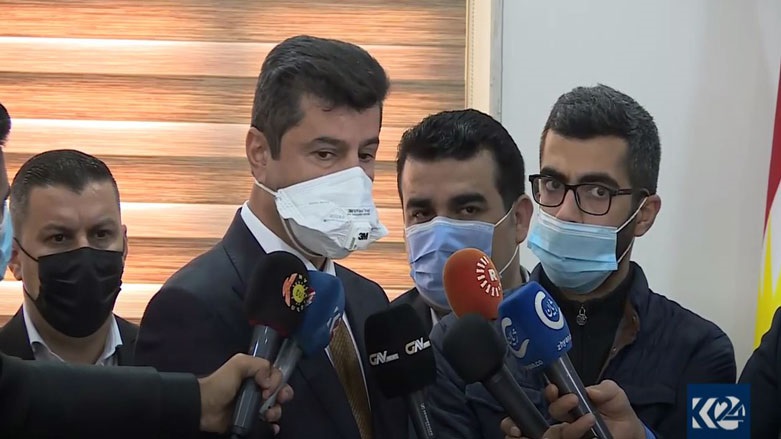Duhok governor pledges not to close camps before displaced Iraqis can safely return home

ERBIL (Kurdistan 24) – The top official in the Kurdistan Region's Dohuk province stressed on Tuesday that his local government will not close any camps for internally displaced persons (IDPs) from multiple areas within Iraq unless it is assured that those areas are safe for civilians.
"The Kurdistan Regional Government (KRG) deals with the IDPs in a brotherly manner because they are our people," Governor Ali Tatar told reporters during a tour of several displacement camps.
The United Nations warned in December that it was “gravely concerned” about the fate of large numbers of the millions who were displaced since the Islamic State's rise in the country in 2014 as Baghdad continues to close camps where they've been living for years.
Read More: UN ‘gravely concerned’ as Iraq closes camps before displaced can safely return home
This followed an announcement by the Iraqi Ministry of Migration and Displacement that it had closed the Laylan camp in Kirkuk province, previously home to roughly 7,000 IDPs, forcing many to return to hometowns with precarious security situations and almost completely lacking in public services and infrastructure.
Governor Tatar stressed that Kurdistan Region camps would remain in operation as long as needed, but that the KRG needed increased international funding to do so. Many camp residents' necessities are provided by the UN, various international organizations, and Iraq's federal government, but for the most part, he said, it is up to the regional government to foot the bill.
Tatar called on the United Nations Mission in Iraq (UNAMI) and Bagdad to provide various kinds of aid, especially kerosene as temperatures continue to drop.
Regarding discussions to close down displacement camps in the Kurdistan Region for families from the disputed province of Sinjar (Shingal), according to the Erbil-Baghdad Sinjar Agreement, Tatar said, "It is not possible to close any camp unless the terms of the aforementioned agreement are not met and unless the displaced come to the full conclusion that the conditions have become stable and safe in their areas of residence."
KRG officials announced on Sunday that the number of displaced people coming from within Iraq to the Kurdistan Region continues to increase, despite a plan prepared by the federal government to "end the displacement file" by the end of 2020, a self-imposed deadline that has since passed.
In mid-October, the federal government announced a plan to close displacement camps across the country in three phases, the last of which would be those in the Kurdistan Region.
Furthermore, Hoshang Mohammed, Director General of the Kurdistan Regional Government’s (KRG) Joint Crisis Coordination Centre (JCC), revealed on Monday that the Kurdistan Region continues to host the largest number of IDPs in Iraq, despite the significant financial challenges of doing so.
Read More: Kurdistan Region continues to host largest number of refugees, IDPs in Iraq: JCC Director
Editing by John J. Catherine